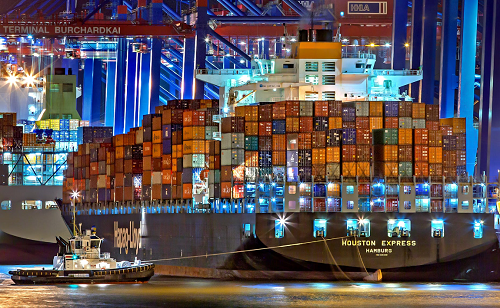
Blog
The 5 Most Common Maritime Toxic Chemical Exposures Maritime Workers Face
Posted in Maritime, Maritime Piracy
Maritime workers face a wide range of potential risks and hazards whether working on oil rigs, cruise ships, cargo ships, docks, barges, or shipyards. One such hazard is maritime toxic chemical exposure.
Exposure could result in inhaling toxic fumes or from accidental spills that cause burns, respiratory problems, and other injuries. Employers are required by various maritime laws and the Jones Act to provide safe working conditions that include providing the right PPE (Personal Protection Equipment); training on how to handle, store, and use chemicals; and limiting exposure.
1. Chlorine
Chlorine is used to disinfect and sterilize different areas like bathrooms, sinks, and swimming pools. The mishandling of chlorine—as when mixing it with other cleaning products—could result in the release of gaseous chlorine, which is poisonous and could be inhaled, resulting in eye and throat irritation and respiratory problems.
2. Benzene
Benzene is commonly found on crude oil ships and cargo ships, as well as oil rigs. Maritime workers who clean holding areas and perform maintenance have a higher risk of exposure to this chemical, which can cause internal bleeding, a lowered immune response, and leukemia.
3. Ammonia
Ammonia is a type of gas that is commonly used as a refrigerant. When exposed to high temperatures, the gas breaks down into nitrogen dioxide and hydrogen—both very flammable gases. Explosions could occur and inhaling the gas can cause throat and nose irritation, respiratory problems, fluid accumulation, and difficulties breathing.
4. Asbestos
While not classified as a toxic chemical, exposure to asbestos can lead to asbestosis and mesothelioma. Asbestos can still be found on vessels, oil rigs, and ships that were built before the 1980s.
5. Hydrogen Sulfide
Hydrogen sulfide is a chemical that is created naturally through decomposition. This chemical is commonly found on fishing vessels. Exposure to the gas can cause nose, lung, eye, and throat irritation. Overexposure can cause a person to become unconscious and stop breathing, resulting in death.
What to Do if You Are Injured from Maritime Toxic Chemical Exposure
If you have been exposed to chemicals while on the job and are injured, you may be entitled to compensation under the Jones Act and other maritime laws and acts. You could receive compensation for medical bills, lost wages, and more.
For further information and a FREE consultation with a maritime attorney, please feel free to call Maintenance and Cure, part of Schechter, Shaffer & Harris, L.L.P., at 800-836-5830 today!














